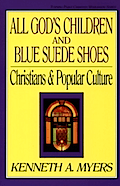
The New York Times’ Jon Pareles today in a perceptive article:
It’s some kind of milestone: Three of the Top 10 hits on last week’s pop music chart have choruses that can’t be played uncensored on the radio and won’t have their original lyrics quoted in this family newspaper. All three use variations on a familiar, emphatic, percussive four-letter word.
The offending syllable is right in the titles of two of the songs, deployed as an imperative by Cee Lo Green and as an adverbial participle by Pink. Mr. Green’s song was nominated for a Grammy Award, where its televised listing was coyly phrased, “The Song Also Known as ‘Forget You.’ ” Pink’s song, a self-help power ballad assuring insecure people that they don’t have to be (emphatically) perfect, also has a cuss-free version. There’s an airplay-ready variant of Enrique Iglesias’s hardcore hit discreetly titled “Tonight (I’m Lovin’ You).” But it’s the bluntness of his original chorus — which is prefaced by Mr. Iglesias singing, “I don’t mean to be rude” — that got the song noticed in the first place.
Of course he means to be rude! Pop songs fight to be noticed in an arms race of sentiments, gimmicks, sonic manipulation and promotional strategies. For Mr. Iglesias, trading pop’s usual affectionate euphemism for the bluntly physical verb couldn’t be more calculated; as a pop lover-boy, Mr. Iglesias decided that the crudity would turn on more fans than it would drive away. It’s a cheap shot that worked. (He has also released a video clip set in a strip club, complete with topless women in a cage.)
….Shock value is viral, and probably a selling point.
….Mr. Green, Mr. Iglesias and Pink got their competitive advantage by making a relatively early breach of pop’s (thinly maintained, mostly illusory) decorum. But any kind of bandwagon effect is going to get boring fast, even if radio stations never play that scary word. Deploying the f-bomb also defuses it; give or take a few copycats in the months to come, it’s going to sound about as potent as a popgun.

So Ken Myers was right in 1989. Let’s all admit it. And I’ve hardly ever read a book in which I highlighted more lines:
Since it is the purpose of most forms of popular culture to provide exciting distraction, we should not be surprised that over time, television programs, popular music, and other forms become more extreme (and more offensive) in their pursuit of titillation. Folk culture has the capacity to limit extremes, since it is the expression of the values and aspirations of a community. Popular culture, on the other hand, presupposes the absence of community of belief or conviction.
And someday soon, perhaps, another prediction of the American future will come true.